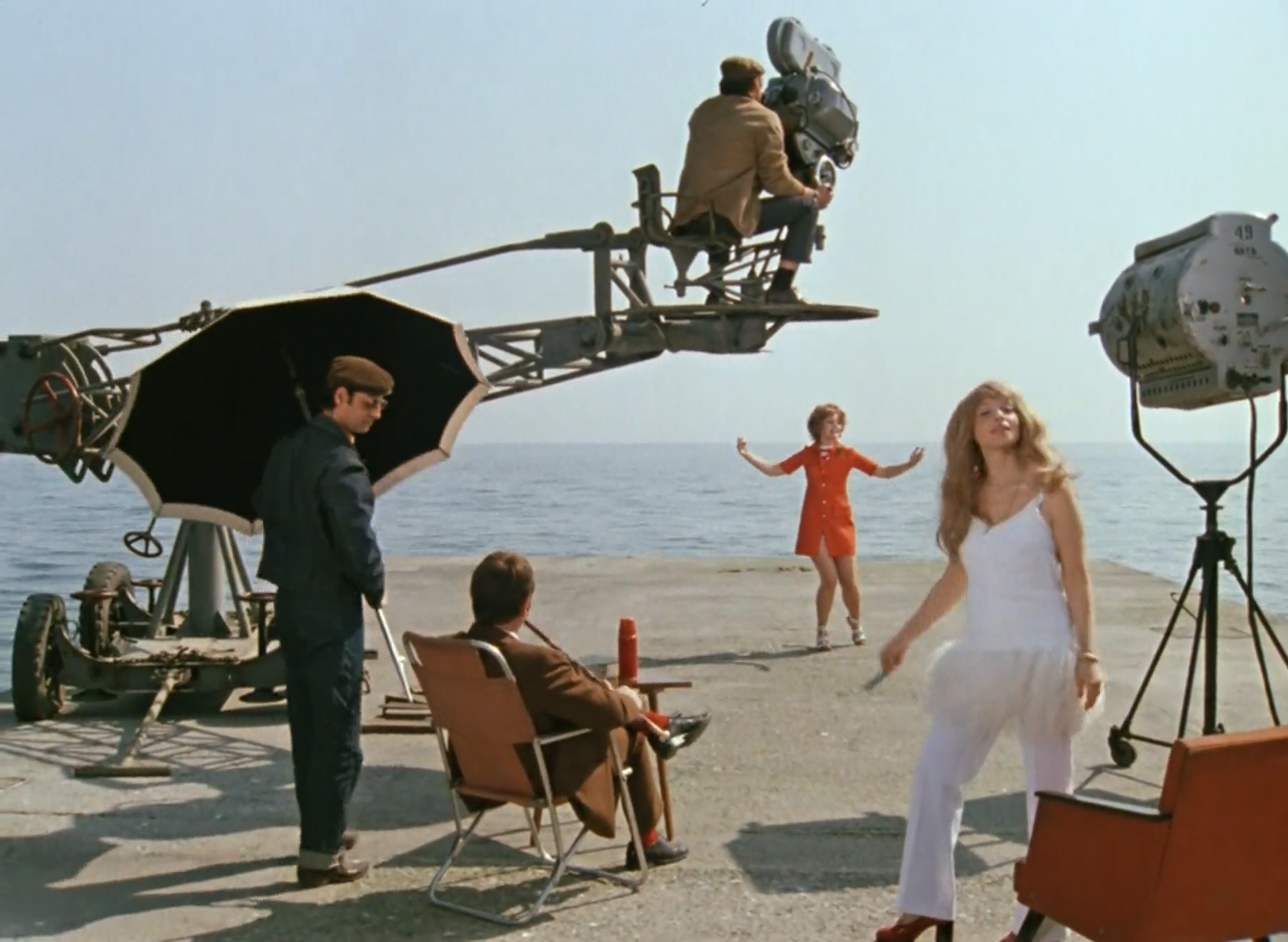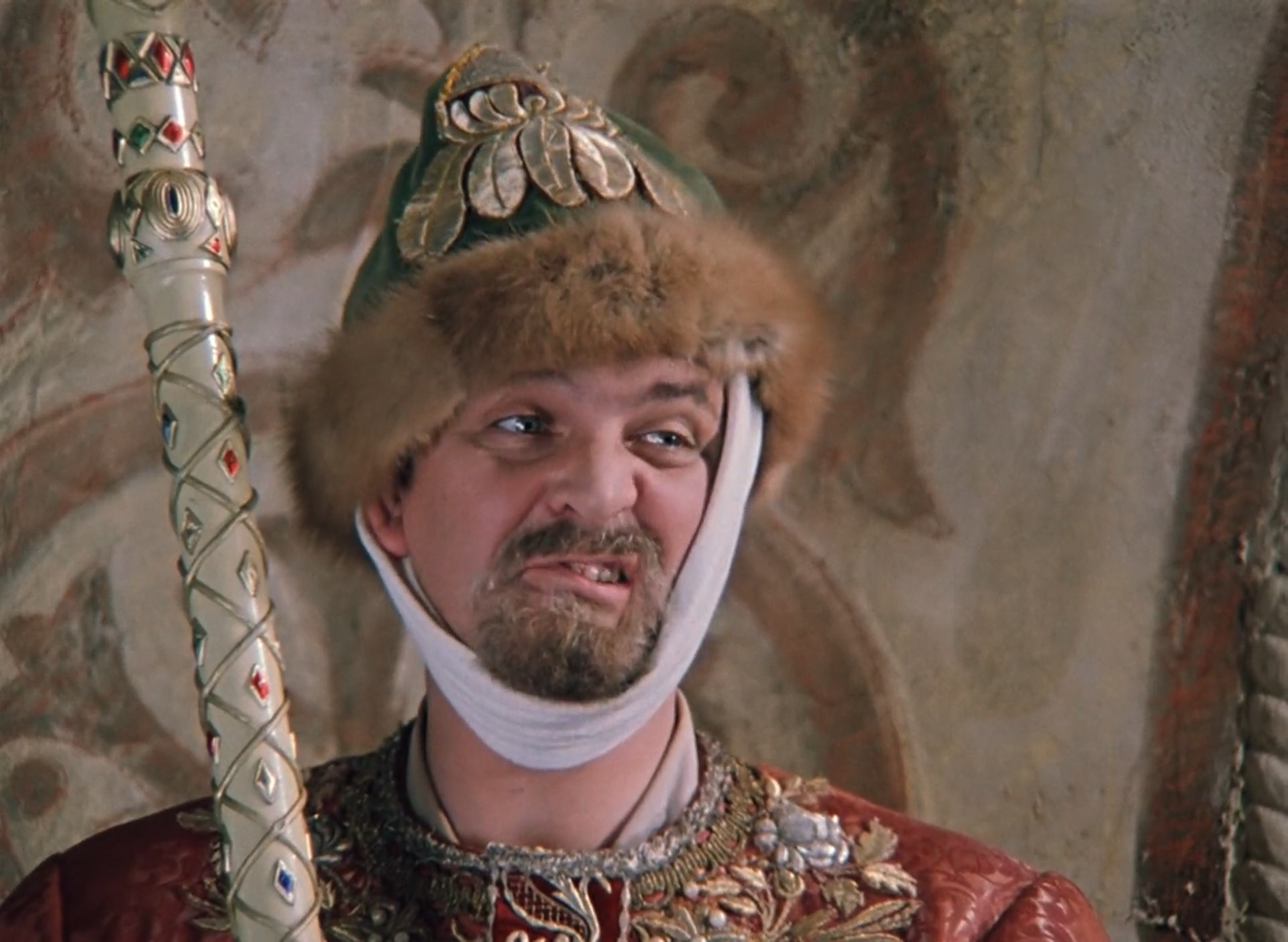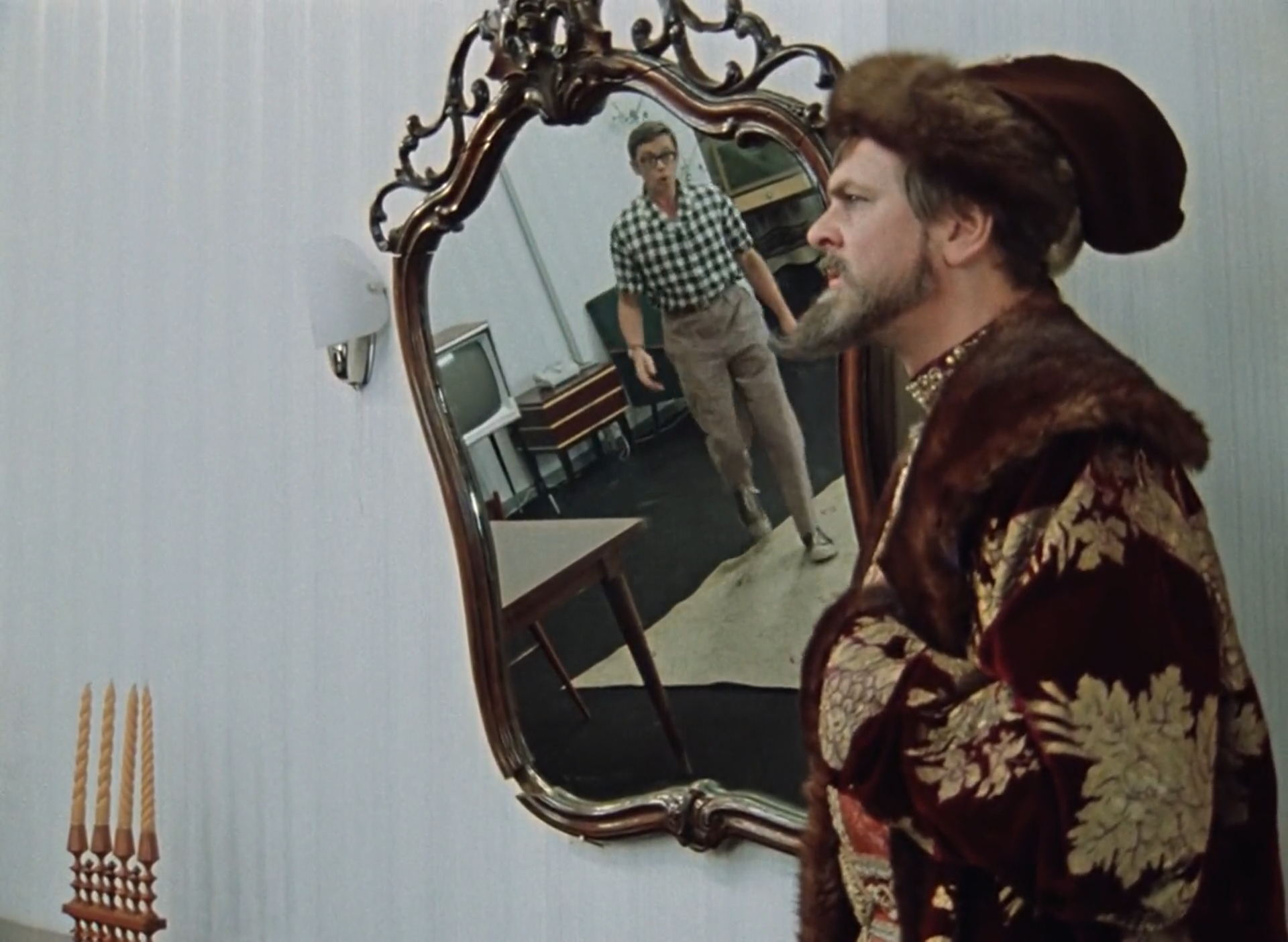
Last night we watched a film from the Soviet Union branded a comedy, shot in the early 1970s. Usually comedies from this region of the world in that period of time were considered comedies but rarely had much comedy to them, often relying on light pokes at specific regions and ideologies from its republics, leading to humour that only those of the time and place would really understand. I've seen a few comedies from this period and most haven't really managed to land with me as a result, being such an outsider to the language and the cultural differences. I'm usually a bit more hesitant to watch such films because of this, but I was told that Ivan Vasilievich: Back to the Future was a New Year's tradition for most, a film that was actually a comedy that people would watch over the holiday. I wasn't sure what to expect from it, remembering the films I had seen previously and assuming it would be something that just wouldn't really land with me. It was a fun exploration of some of the history of the region though, something that did actually generate quite a few laughs from me, as well as displaying some really creative directing and cinematography for the time. It didn't seem all that much like something from the early 70s, even having a bit more creativity and humour to it than some of the west's comedies from the same era. That was quite a surprise to me, and I did come out of it with an appreciation for the technical aspects.
To no surprise it was a film that looked at the present and the past. It's quite common for Soviet and post-Soviet films to rely on the past events of the region in search of stories to tell. This one focusing on the character and individual of Ivan the Terrible. I wouldn't say I have much awareness of who he was, though one would assume that from the name alone he wasn't one of great kindness. It features a narrative in which an inventor creates a time machine that takes people back into the past, accidentally leaving a Stalin/Ivan the Terrible look-alike in the past, and bringing the actual Ivan the Terrible into the Soviet future. The comedy is in the characters and their interactions with each other, but also the humour in how the two characters switched in time end up interacting within different periods. The look-alike now having to portray himself as the Tsar, and the real Tsar ultimately living his life in an apartment building within Moscow, as the present contains a whole level of dramatic events involving the inventor and his upcoming former lover. His wife announcing she wants to leave him for another man; oddly a frequent event within Soviet films which is a surprise given the assumed importance of healthy marriages within the party. Our inventor character sort of shrugs this all off though, he's so immersed in his creation that his careless wife ends up displaying some jealousy in his inability to really care.

For the most part this sums up the story. The characters stuck in the past have to pretend to survive, and the drama of the present mixes with Ivan the Terrible as he lives within an apartment building. The film's creativity is explored from the very start though. It's a beautifully directed film that takes a lot of technicality with it: a kaleidoscope effect takes place in what appears to be over the lens, giving that feeling of time bending and morphing within scenes. Effects are hand-drawn over the film to show sparks and light. The machinery at work is done in a really fun way that shows some great creativity for the early 1970s. I was surprised to see such creativity within a film from this time, doing something incredibly different at the time. There's also a switch between black and white between realities, something that also was a nice touch but also relatively common in other films; though often enough they'd be relying on something like black and white and sepia. Colour was still relatively new to that time, with much of the 60s still relying on black and white film stock. I found the scenes of the past to be a bit less interesting mostly because of the locations utilised. Very cultural and historic areas but they felt a bit bland in their design. Old castle walls with little colour, large and mostly empty. A little less pleasing to the eye compared to the scenes of the present that showed a more lively Moscow in the summer. The directing also utilised a lot of sped-up sequences, showing action in more cartoonish manners. That was fun!

I was surprised that it managed to actually generate some laughs from me. It reminded me a lot of the west's films more from the 80s, the family comedy genre that was picking up with the production of the Hollywood blockbuster idea. The film did have a bit of a 'Back to the Future' feeling to it, which is interesting given the film's title but also the 1973 release date, holding some similarities to that idea of people running through time and getting caught up in scenarios that place them into different roles in order to not only survive and draw less attention to themselves, but find a way back into the future where they belong. I guess the best way to describe this title is to compare it to Back to the Future. To call it the Soviet Union's equivalent that also coincidentally came a few years before. Featuring that same level of humour, charisma and unique characters, but also the story that holds cultural and historical relevance to its intended audience. I think it does well at holding up in this era, which is often not the case for such titles that far back. Though it's still clearly unheard of in the west. But around the former republics and within Russia, it's considered one of the holiday's gems.